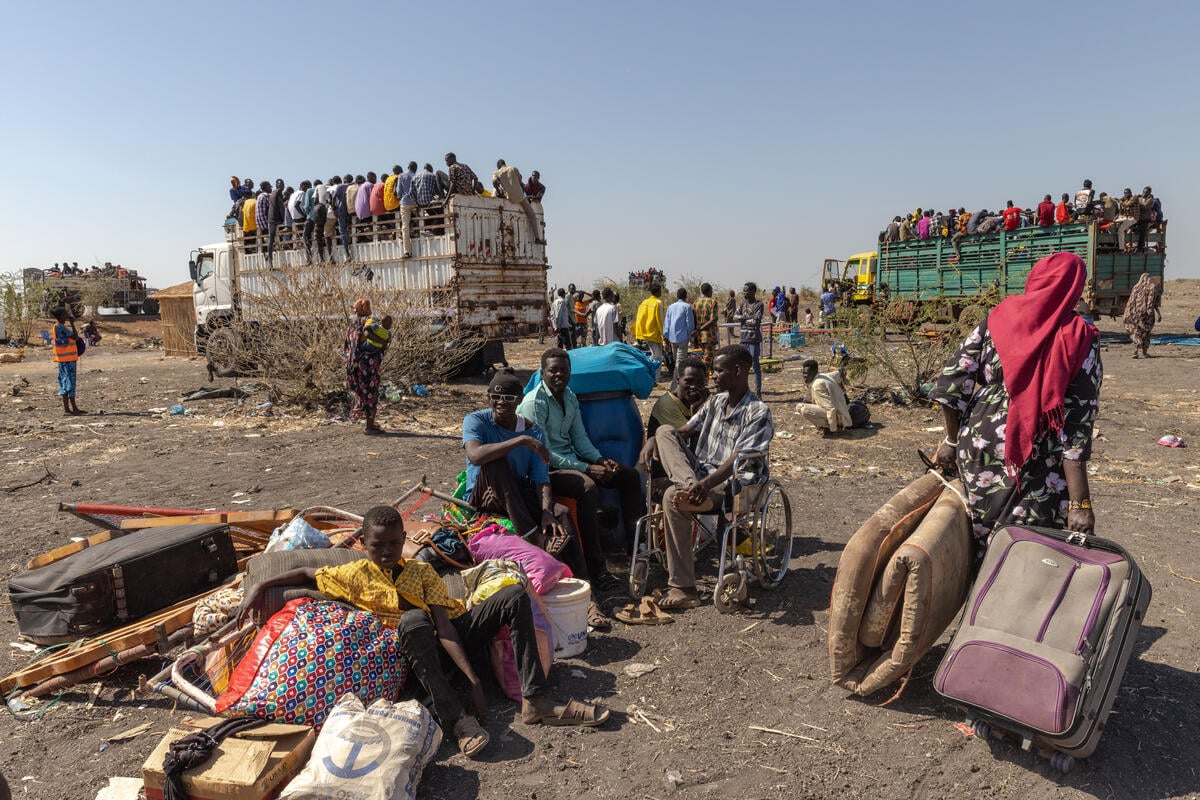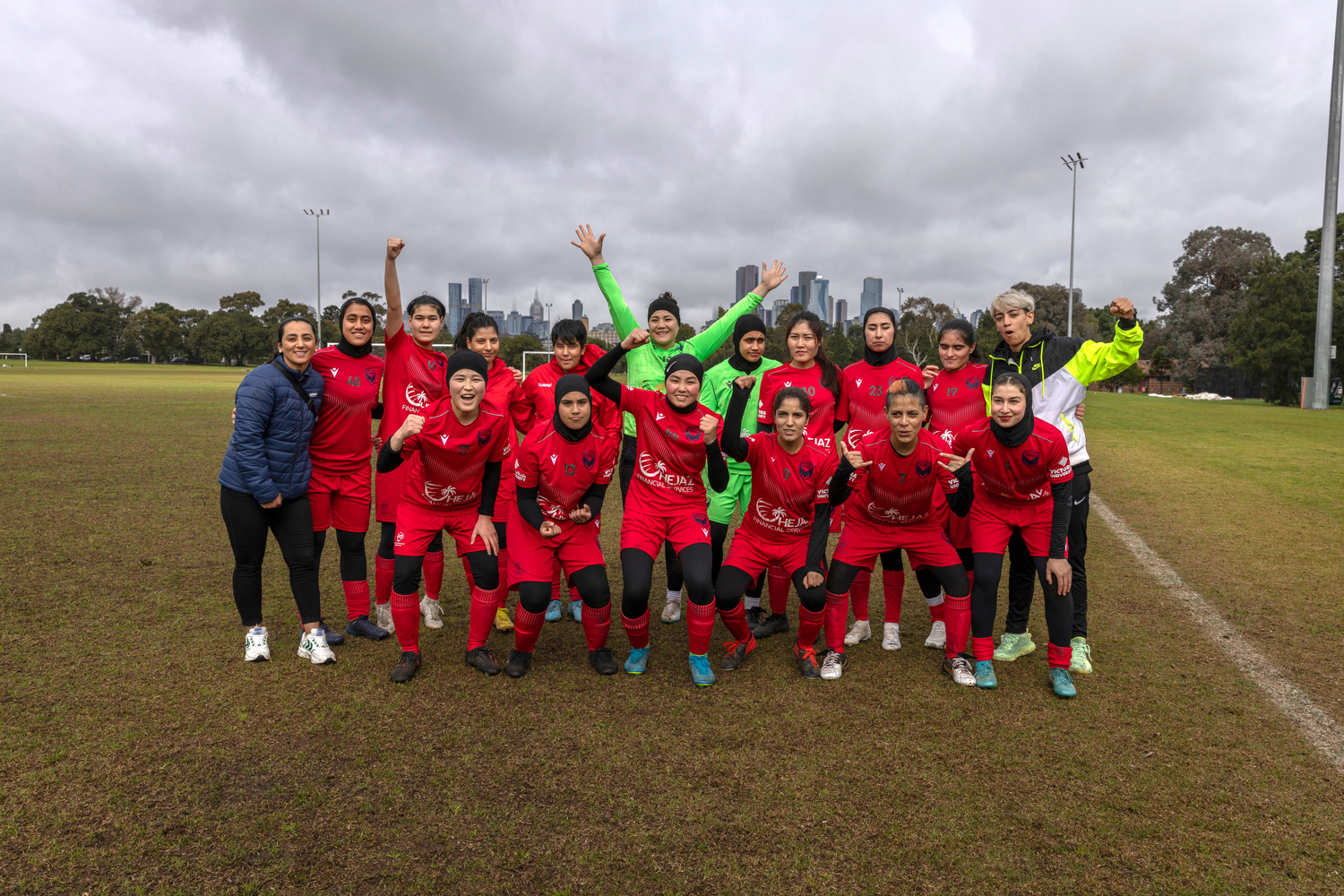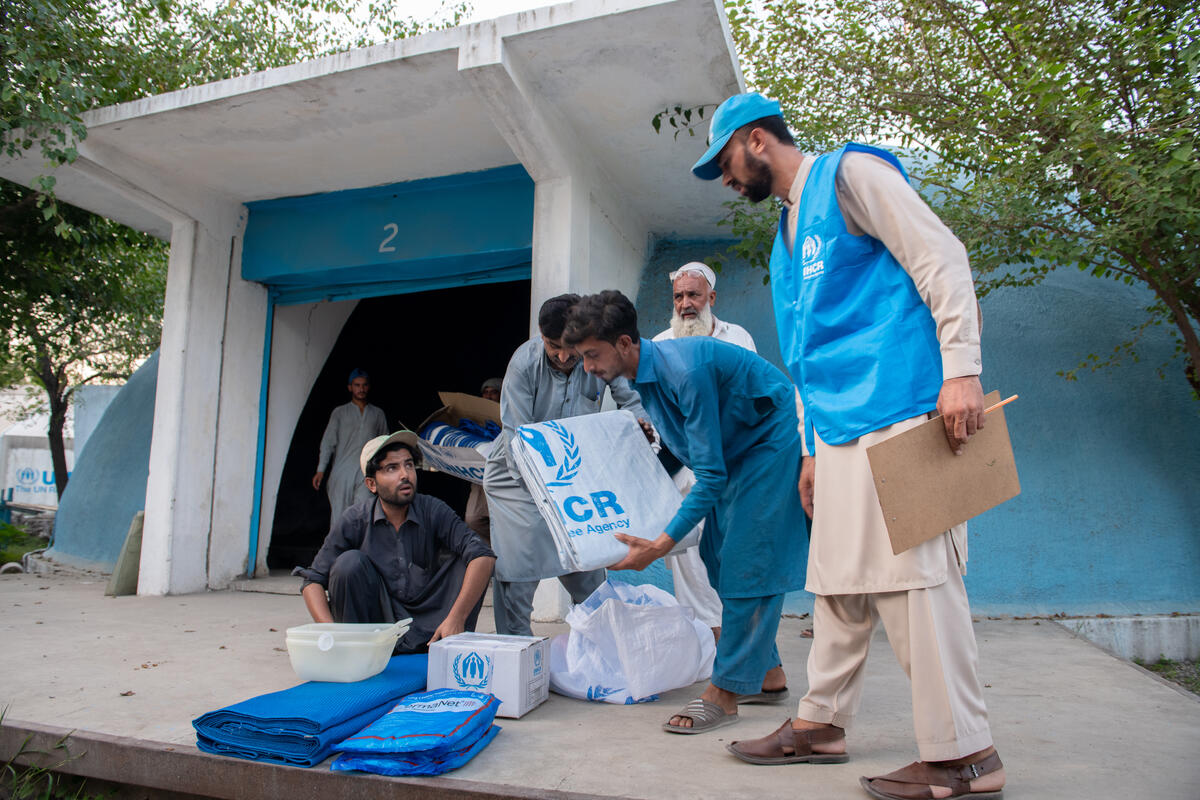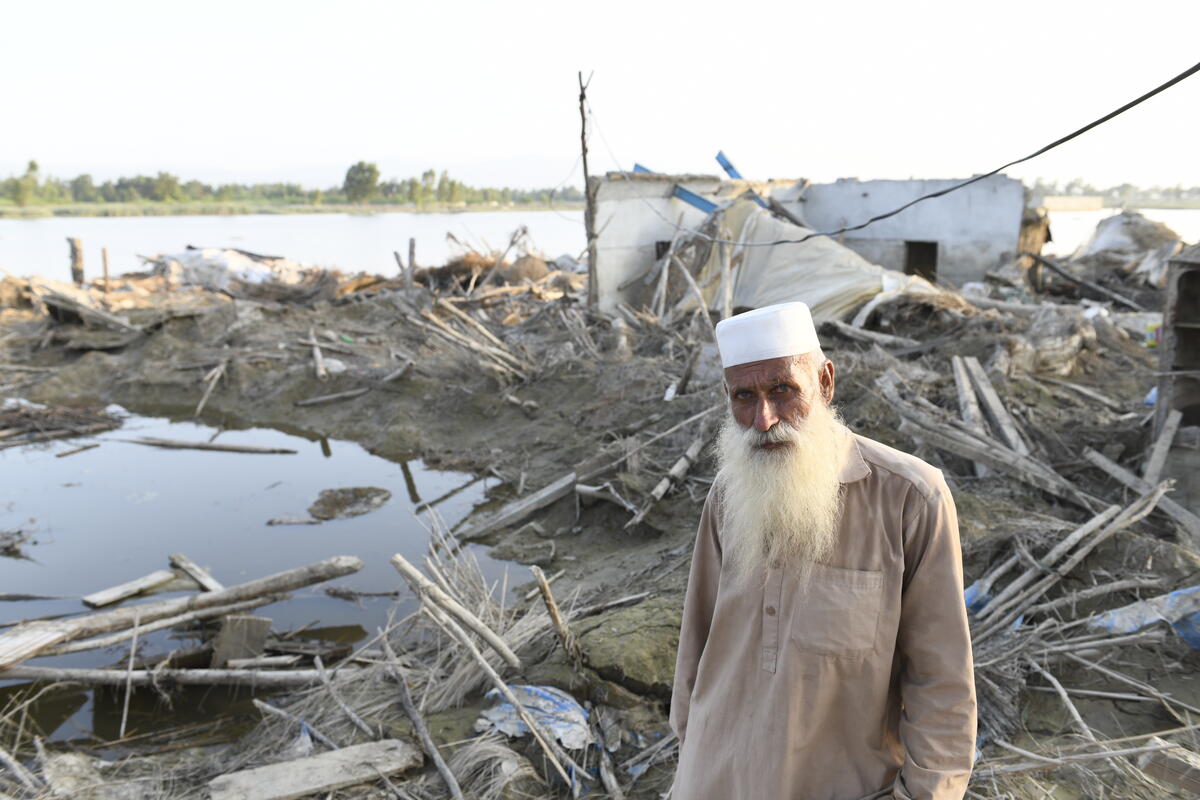UNHCR resumes repatriation from Pakistan to Afghanistan
UNHCR resumes repatriation from Pakistan to Afghanistan
UNHCR today began relocating refugees from a remote camp near the Khyber Pass that is slated for closure this month under a plan to help all residents of the two-year-old Shalman Camp return to Afghanistan or move to another refugee camp. The convoy of 402 refugees snaked its way through the mountains towards Kotkai Camp, in a more hospitable region further north. The relocation comes two days after a group of 416 camp residents returned to Afghanistan. UNHCR resumed assisting refugees return from Pakistan on 1 March. The decision to resume repatriation came after UNHCR took additional security precautions for its staff and received assurances from the governments of both Afghanistan and Pakistan that they are combating militants who have targeted aid workers, including UNHCR's Bettina Goislard who was killed in the Afghan city of Ghazni last November
Shalman was chosen for the first step in a programme to consolidate camps established to shelter Afghans fleeing the war that followed the 11 September 2001 attacks in the United States. It was selected because of its shrinking population and a waterless location where it was difficult and expensive to provide assistance. The UNHCR convoy, the first of what will be daily movements to Kotkai, consisted of six buses and 13 trucks to carry the belongings of the 56 families, including the poles to help construct new mud houses. The escort included two ambulances.
About 300,000 refugees flooded out of Afghanistan in late 2001 to escape the fighting, but the total in the 15 "new" camps like Shalman and Kotkai built to shelter them has shrunk to about 200,000. UNHCR had prepared facilities for the arriving refugees at Kotkai, which has extra space because of departures from there over the two years we have been operating our voluntary repatriation programme to assist Afghans back to their homeland. Initially, those transferred from Shalman will stay in tents while preparing new houses. About half the refugees in Shalman said during a January survey that they would rather return to Afghanistan than relocate to another camp inside Pakistan. UNHCR gives each returning refugee from Pakistan a travel grant that varies from $3 to $30, depending on the distance home, plus $8 instead of food and non-food items like buckets that were provided in previous years of the repatriation programme.
UNHCR plans to continue the programme of camp consolidation during the next two years. Two camps in the Chaman area of Balochistan Province are likely to be the next closed, with a start as soon as there is agreement on the alternative refugee camp inside Pakistan that will be offered to residents not wishing to repatriate.
At the same time, UNHCR is assisting all Afghans in Pakistan who want to go home. More than 1.9 million Afghans have received return assistance in the past two years and UNHCR has forecast about 400,000 will ask to go home this year. The voluntary repatriation programme runs until the end of 2005.









